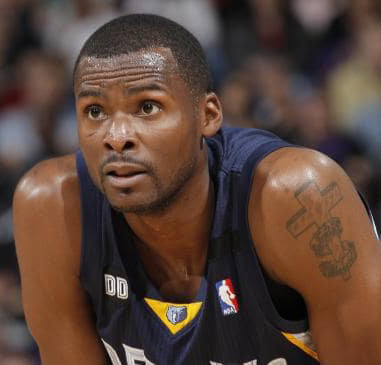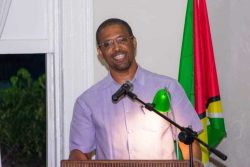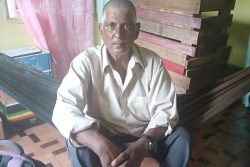(Reuters) Former NBA player Keyon Dooling revealed powerful details Tuesday about a mental health situation he experienced that stemmed from a childhood incident 25 years earlier.
Dooling was eventually diagnosed with post-traumatic stress disorder after spending time in a mental health facility. The 37-year-old wrote about his experience for The Players’ Tribune with an article called “Running from a Ghost,” tied in with May being Mental Health Awareness Month.
Dooling said that when he was just 7 years old, a 14-year-old boy in his neighborhood forced him to perform oral sex. Dooling said the experience immediately changed him but it was something he had kept hidden from outsiders as he became a high school star, college standout at Missouri and NBA player with seven different teams.
But in September 2012, Dooling, a member of the Boston Celtics, was at a restaurant in Seattle and went to use the restroom. A man groped him, and Dooling was irate, but the aftermath left him consumed with the emergence of deep-seeded memories of his past.
“All these images started flooding my mind, and I couldn’t tune them out,” Dooling wrote. “I had this horrible, crushing anxiety wash over me.”
The ensuing meltdown concerned his family and teammates.
Dooling couldn’t eat or sleep and was paranoid nearly all the time.
“The worst part was that I could see the fear in my children’s eyes,” Dooling wrote of his four children. “They knew something was wrong with Daddy, and it was bad.
“There was no relief. I genuinely felt like I was going die at any moment. The thought of playing basketball, on top of all this, was too much to bear. So that’s when I grabbed my son and drove over to tell (Celtics general manager) Danny Ainge that I was done.”
Not long after the conversation with Ainge, Dooling was in a mental institution wondering how his world had crumbled.
The Celtics were supportive of the situation, and eventually Dooling received a life-changing diagnosis from Dr. Timothy Benson at Harvard Medical School.
Slowly but surely, Dooling put the incident in the past and regained his zeal for life.
Now that he is on the other side, the player who averaged 7.0 points in 728 NBA games over 13 seasons wants to attack the stigma against mental health and be part of the solution.
“When we have diabetes, we go get treated. When we tear our ACL, we go get surgery. But if our heart is broken, or if our soul is hurting, what do we do?” Dooling writes. “We just internalize it. We become hard. We spend our whole lives running from the ghost. Until one day, it catches up to us. And I can speak from personal experience that all the alcohol and all the women and all the money in the world will not solve the problem.
“The only way to finally escape is to stop running and turn around and face the ghost.”









